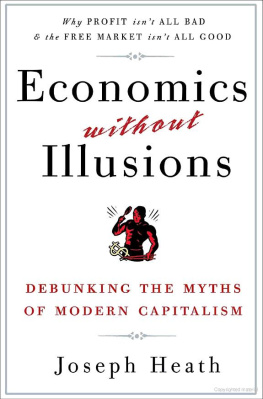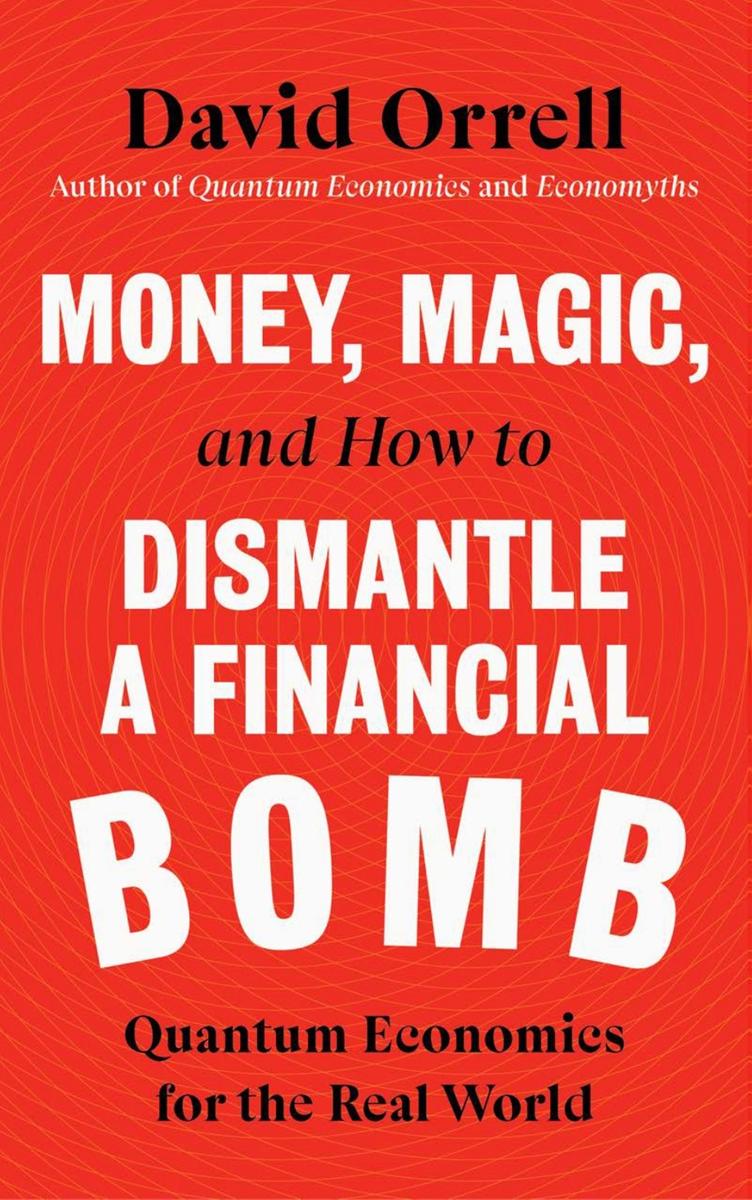
i
Praise for Money, Magic, and How to Dismantle a Financial Bomb
Orrell argues that modelling markets with the mathematical toolbox of quantum mechanics could lead to a better understanding of them Such ideas may still sound abstract. But they will soon be physically embodied on trading floors One way or another, finance will catch up.
Economist
[An] impressive, intelligent and imaginative bomb of a book [it] entertains, educates and delights A highly recommended read for all connoisseurs of curiosity and hope. And an absolute must-read for would-be economists.
Chris A. Weitz, Gaiageld.com
This is a super addition to the literature on the quantum approach towards money, its cyber-version, and how it will change our lives. David Orrell has pulled together different thinking and approaches to guide us through the maze of magic money.
Andrew Sheng, former central banker and financial regulator, and distinguished fellow at the Asia Global Institute, University of Hong Kong
David is our go-to source for anything and everything about quantum finance and economics. Hes at the forefront of the subject and, whats more, he can explain it well.
Paul Wilmott, Editor-in-Chief, Wilmott magazine
Praise for Quantum Economics
Beautifully written, inherently ethical, and often hilarious, this book is a must-read for anyone wanting to understand the weird, and getting weirder, world of modern finance.
Margaret Wertheim, author of Pythagoras Trousers and The Pearly Gates of Cyberspace
As money becomes more digital and diffuse, it also becomes more quantum. In this timely and illuminating book, David Orrell brings us to the frontier of where economics, physics and psychology intersect. Youll never look at money the same again!
Dr Parag Khanna, author of Connectography: Mapping the Future of Global Civilization
ii On the cusp of an earlier revolution, Karl Marx said all that is solid melts into air and all that is holy is profaned. Constructing a less mechanistic and even more revolutionary science of quantum economics, David Orrell proves it so. Orrell does not dabble in metaphor or metaphysics: he intellectually, persuasively and corrosively transmutates money into a quantum phenomenon. In the process, classical economics is profaned to good effect and a quantum future glimmers as a real possibility.
James Der Derian, Chair of International Security Studies, University of Sydney
Praise for Economyths
A fascinating, funny and wonderfully readable take down of mainstream economics. Read it.
Kate Raworth, author of Doughnut Economics
Consistently interesting and enjoyable reading A wide audience including many non-economists could benefit from reading it.
International Journal of Social Economics
Lists 10 crucial assumptions (the economy is simple, fair, stable, etc.) and argues both entertainingly and convincingly that each one is totally at odds with reality. Orrell also suggests that adopting the science of complex systems would radically improve economic policymaking.
William White, former Deputy Governor of the Bank of Canada (Bloomberg Best Books of 2013)
This is without doubt the best book Ive read this year, and probably one of the most important books Ive ever read Orrell exposes the rotten heart of economics [S]hould be required reading for every politician and banker. No, make that every voter in the land. This ought to be a real game changer of a book. Read it.
Brian Clegg, PopularScience.co.uk
vii
For my mother
viii
CONTENTS
Money has long been associated with a kind of magic, and finance with alchemy. After all, how can something like a piece of paper with numbers on it be treated as if it were made of gold?
Money has other apparently magical properties. It can be created out of the void and vanish without so much as a puff of smoke. It can flash through space. It can grow without limit. And it can blow up without warning.
Money is like nothing else in the world except, that is, the basic operations of the universe.
Drawing on the findings of the emerging area of quantum economics, this book will take the reader on a journey through money, magic, and quantum reality and show how we can dismantle the money bomb that threatens social cohesion, financial stability, and the planet.
GOING NUCLEAR
The figure below shows two phenomena which at first glance may seem to have little to do with one another. The image on the top, from 1945, is of the first detonation of a nuclear device, known as the Trinity test.
The image on the bottom is of an empty house down my street in Toronto. The photograph was taken by my daughter as part of a high school geography project. It was during the COVID-19 pandemic, so the schools were closed and courses were online. Students were asked to take a picture of something of interest in their neighbourhood to write a short comment on, and she chose this house. The house had then been empty for well over a year, and at the time of writing it is empty still. The sign on the front door is a notice of demolition, but it has yet to be knocked down.
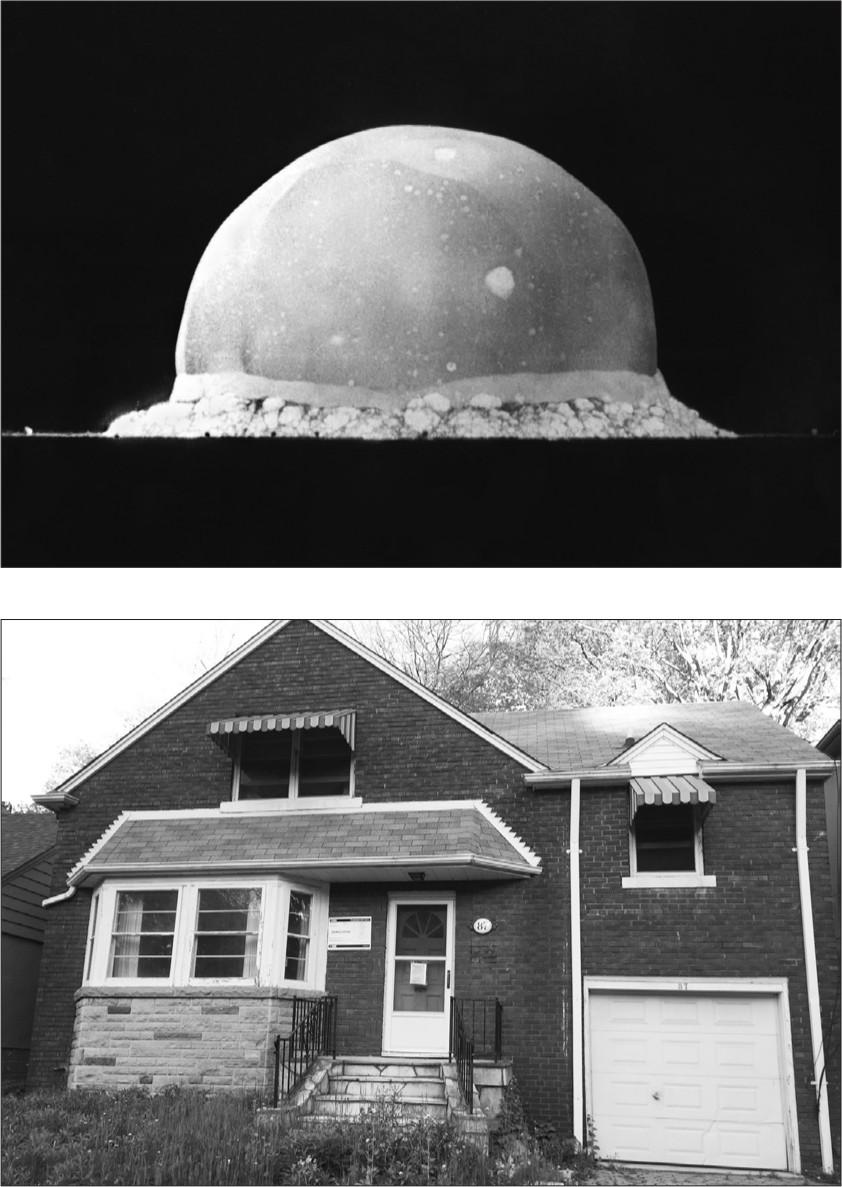
When we first arrived in the neighbourhood, to rent a place up the road, the house a detached property on a standard lot was occupied by an elderly man. I chatted with him a few times; I knew he used to be a chemical engineer, and was a climate change sceptic (he told me hed written a newspaper letter on the subject). One day the house was vacated, and I heard later that he had died. The house was apparently bought and sold more than once, but remained empty. It was last sold for $2,240,000 (Canadian dollars) or about $1.8 million US. For comparison, that is about 64 times the median income for an individual in Toronto, or 32 times the median income of a household with two workers. And at 180 times the global median household income, the price of the house, should they come across it on the internet, might seem unworldly to most of the worlds population especially for the bottom 10 per cent or so of people living in areas of extreme poverty and earning a couple of dollars a day, where entire villages could basically toil forever and not get close.
So what is the connection between these pictures? One is that, at least to the uninitiated, or the unjaded, they both seem to involve a kind of magic. How can less than a kilogram of nuclear material create a giant mushroom cloud? And how can that house be worth so much money?
Another is that they both involve a kind of energy, which as we will see has an intimate connection with money. There are a number of ways to calculate the relationship between a financial asset such as a house and energy, but perhaps the simplest is to base it on the cost of a barrel of oil, which serves as a kind of proxy for energy in the economy. If we assume a typical price of about US$60 per barrel, which as seen later is an appropriate long-term average, the money from the house sale could buy 30,000 barrels which is a lot of oil. A different approach is to view the economy as a thermodynamic system, and ask how much physical energy is needed to sustain it, which as seen later gives a very similar result.
The Trinity test bomb, meanwhile, released a fearsome 92 terajoules of energy which works out to about 20 tank cars full of oil. In a very real sense, the empty house therefore contains (or represents a claim on) more energy than the Trinity blast, and the same could be said for the average detached property in Toronto, or for homes in many cities across the world. What kind of sorcery is this?

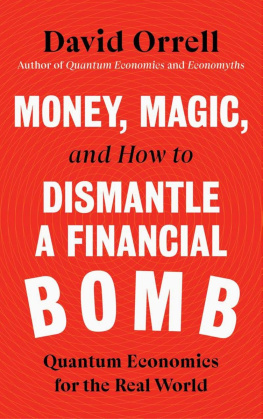
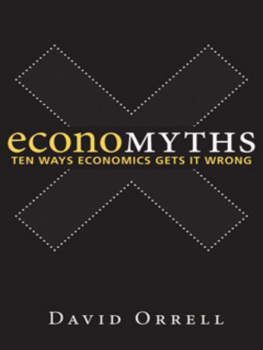
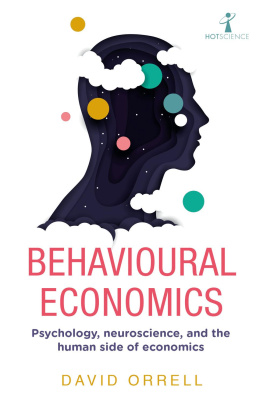
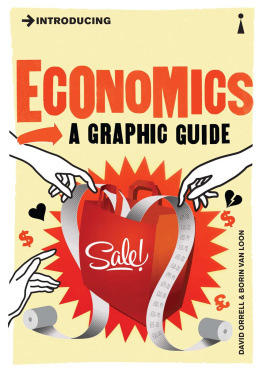

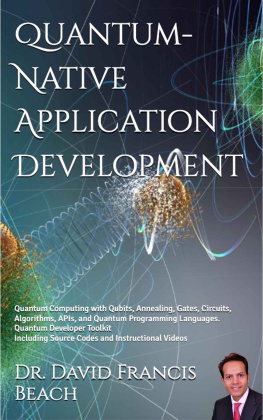
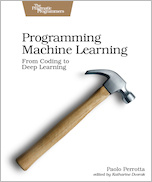
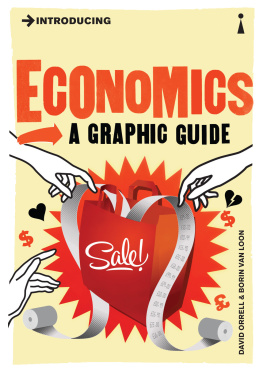
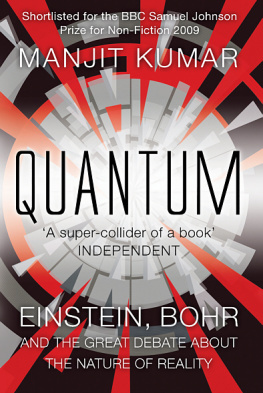
![David Orrell [David Orrell] - Quantum Economics](/uploads/posts/book/114631/thumbs/david-orrell-david-orrell-quantum-economics.jpg)
